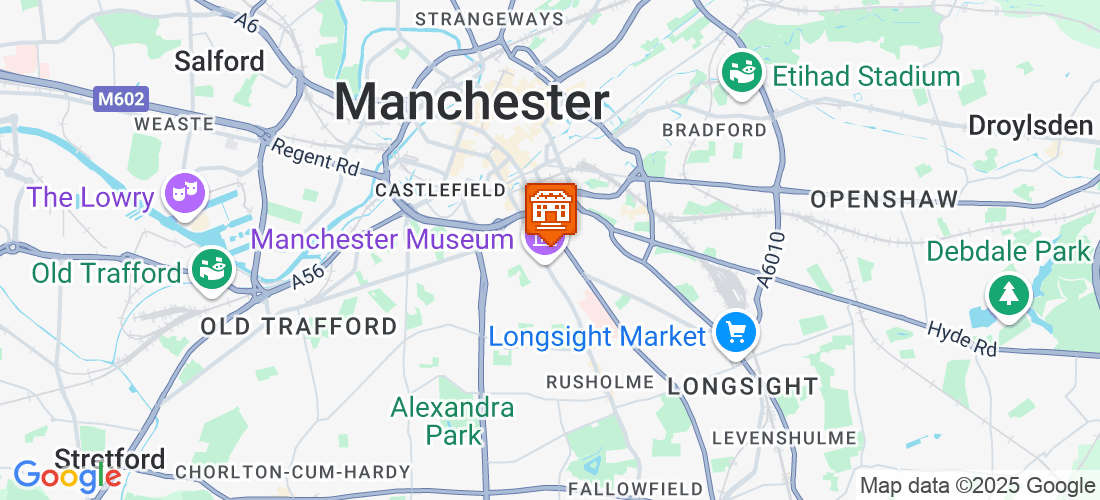 Humanitarian Practice PgCert
The University of Manchester
Humanitarian Practice PgCert
The University of Manchester

Key Course Facts
Salary
Salary of all UK Graduates of
| 15 months after graduation | 3 years after graduation | 5 years after graduation | |
|---|---|---|---|
| Median salary | £33109 | £34159 | £35700 |
| 25-75 percentile range | £30122 - £40073 | £20370 - £39639 | £22368 - £42249 |
All courses in the UK
Course Description
Our blended learning MSc in Humanitarian Practice is part of the Leadership Education Academic Partnership (LEAP) programme.
A flexible course designed by humanitarians, for humanitarians, it allows professionals to study alongside working in the field.
The programme is delivered jointly by the Humanitarian and Conflict Response Institute (HCRI) at The University of Manchester and the Liverpool School of Tropical Medicine (LSTM) in partnership with Médecins Sans Frontieres (MSF).
The course brings together the disciplines of epidemiology, history, politics, anthropology, development studies, international relations, public health, management and humanitarian medicine, as well as the expertise of academics and leading practitioners.
Crossing traditional subject boundaries, it will enable you to reflect critically on issues arising from your own work, the wider humanitarian agenda and develop the skills set needed for contemporary humanitarian practitioners.
The course is blended, meaning there is a two-week intensive teaching period each semester either online or in Manchester or Liverpool, as well as online courses that you can study remotely.
As a student of HCRI and LSTM, you will benefit from a comprehensive and interdisciplinary approach to teaching and research, as well as individual tutoring and supervision from academics from a wide range of disciplines.
Entry Requirements / Admissions
UCAS Tariff of Accepted Students for this course
This particular course
Requirements for international students / English requirements
IELTS academic test score (similar tests may be accepted as well)
-
- 6.5
- All other courses
-
- 6.5
- Manchester Business School East - Undergraduate Degrees
-
- 6.5
- Manchester Business School - Graduate Degrees
-
- 7.0
- Graduate Degrees
- (no subscore less than 6.0)
-
- 7.0
- Undergraduate Degrees
- (no subscore less than 6.0)
Applicants should hold an Upper Second Class Honours degree, or its overseas equivalent. Consideration may be given to those without this who have extensive (over three years) professional humanitarian training and experience.
Current MSF employees must consult with the OC for whom they are working before submitting an application.
Costs
Average student cost of living in the UK
| Rent | £518 |
| Water, gas electricity, internet (at home) | £50 |
| Supermarket shopping | £81 |
| Clothing | £35 |
| Eating out | £33 |
| Alcohol | £27 |
| Takeaways / food deliveries | £30 |
| Going out / entertainment (excl.alcohol, food) | £24 |
| Holidays and weekend trips | £78 |
| Transport within city | £17 |
| Self-care / sports | £20 |
| Stationary / books | £13 |
| Mobile phone / internet | £13 |
| Cable TV / streaming | £7 |
| Insurance | £51 |
| Other | £95 |
| Average student cost of living | £1092 |
London costs approx 34% more than average, mainly due to rent being 67% higher than average of other cities. For students staying in student halls, costs of water, gas, electricity, wifi are generally included in the rental. Students in smaller cities where accommodation is in walking/biking distance transport costs tend to be significantly smaller.
University Rankings
Positions of The University of Manchester in top UK and global rankings.
Rankings of The University of Manchester in related subject specific rankings.
Social Studies & Humanities
-
-
- #5
- #28
-
- Social Sciences
-
THE World University Rankings by Subject
[Published 19 October, 2023]
-
-
- #7
- #48
-
- Social Sciences
-
NTU Rankings by Subject
[Published 11 July, 2023]
See all 40 university rankings of The University of Manchester
About The University of Manchester
The University of Manchester is a publicly funded research university with a mission to advance education, knowledge and wisdom for the good of society. University of Manchester’s main site is home to the majority of its faculties and is referred to by its students as ‘the campus’, although in reality Manchester does not have a campus but is instead interspersed throughout the city of Manchester.
List of 622 Bachelor and Master Courses from The University of Manchester - Course Catalogue
Student composition of The University of Manchester
-
Total number of students enrolled at The University of Manchester by level Academic year 2021/22 - Full-time equivalent student enrollments published by Higher Education Statistics Agency (HESA) on February 2022
- undergraduates:
- 30130
- postgraduates:
- 12730
- Total:
- 42860
Where is this programme taught

Similar courses
| Program | University | Student satisfaction | Unemployed | Dropout | Tuition (UK) | Tuition (International) |  UCAS Tariff UCAS Tariff |
City | ||
|---|---|---|---|---|---|---|---|---|---|---|

|
International Social Policy PgDip | The University of Nottingham | - | - | - | - | - | - | Nottingham | On campus Full-time |

|
Humanitarian Practice PgCert | The University of Manchester | - | - | - | - | - | - | Manchester | online Part-time |
Ranking publishers
THE Times Higher Education, UK
- Published:
- 19 October, 2023
- Criteria used in ranking -THE World University Rankings by Subject:
- 37.4% Teaching (the Learning Environment)
37.6% Research (Volume, Income and Reputation)
15% Citations (Research Influence)
7.5% International Outlook (Staff, Students and Research)
2.5% Industry Income (Knowledge Transfer)
NTU ranking
- Published:
- 11 July, 2023





